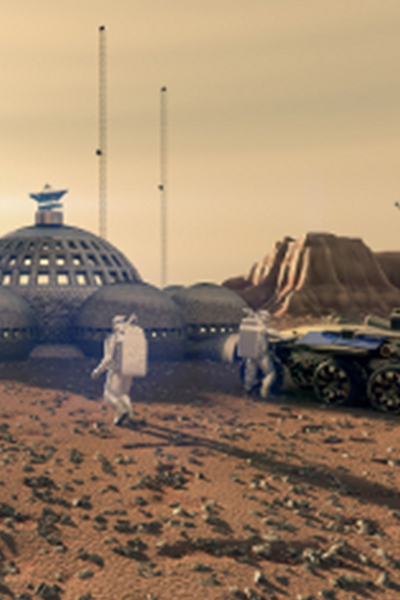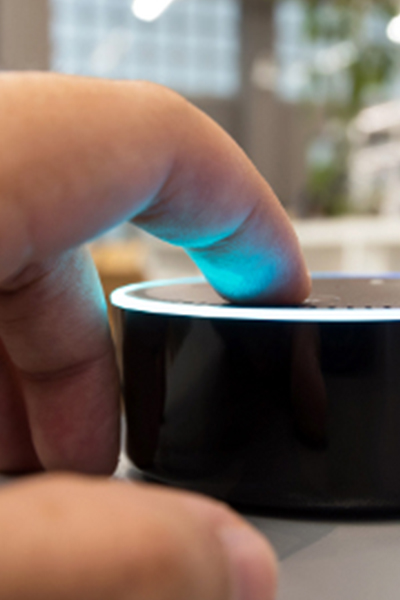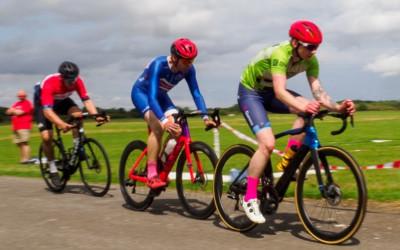Research that is shaping the next 50 years
As The Open University (OU) celebrates 50 years of research, we look at some projects that are set to have a major impact on the future:

The future of policing
OU research is making a significant contribution to the future of policing through the work of our Centre for Policing Research and Learning.
The research, led by Jean Hartley, OU Professor of Public Leadership, is a partnership between the OU and the police to create and use research to improve policing practices, as forces adapt to a changing policing landscape.
Research topics include: cybercrime, forensics, citizens use of technology, police use of social media, and witness identification.

Tackling hate and extremism
As digital activity increases so too does the threat of online extremism.
Led by Dr Peter Bloom, who is Head of the Department for People and Organisations, the Virtual Inclusion: Tackling Hate and Extremism in the UK Using Virtual Reality Technology project received almost £100,000 from the partnership between technology giants Google and the London-based think-tank Institute of Strategic Dialogue (ISD)
‘Virtual field trips’ are being created to help strengthen the social resilience of those aged nine to 11 across England considered some of the most vulnerable to hate and extremism. The aim is for the research to demonstrate the value of virtual reality technology in fostering inclusiveness rather then as a potential high-tech recruitment tool in some susceptible communities.

Citizen forensics
Projects which enable the public and police to work together are becoming more common.
Dr Camilla Elphick is researching the application of psychology to make positive changes and is part of a citizen forensics project, aiming to improve communication between people and institutions such as the police, and is a researcher for Spot, an AI reporting tool enabling people to report workplace harassment and discrimination.

Visions of Hell
The concept of Hell is one which continues to spark debate among the world’s religions.
OU Art Historian, Dr Angeliki Lymberopoulou, is leading the Leverhulme-funded International Networks project on Hell, which examines Hell as shown in the fresco decoration of Byzantine churches on the island of Crete from the period of Venetian domination (1211-1669). Hear what she has to say in the video below:

Living in outer space
Over the last decade, Space Architecture – the theory and practice of designing and building an environment for humans in outer space – has become an emerging challenge.
The research project: Multidisciplinary Investigation of System using Sintering Instrumentation Of the Next generation (MISSION), led by Dr Sungwoo Lim, Research Fellow in Space Sciences, will address important challenges of construction processes in an extra-terrestrial environment such as on the Moon and on Mars.

Bringing the laboratory to you
Technology continues to make it possible for us to learn in less formalised ways.
The OU is at the forefront of making laboratory facilities available to distance-learning students with the OpenSTEM Labs platform allowing students to connect remotely to the most up-to-date scientific equipment to enhance their studies.
Developed by Professor Nicholas Braithwaite, Executive Dean for the Faculty of Science, Engineering, Technology and Mathematics (STEM), the platform offers a model for future science and engineering education which will increase the supply of STEM graduates beyond what can be achieved through reliance on traditional campus-based teaching labs.

Using virtual assistants for carers in later life
As we live longer and are keen to remain in our own homes, virtual assistants may provide a solution:
OU Health and Wellbeing Priority Research Area Research Fellow, Dr Hannah R Marston and independent researcher Julie Samuels have published a paper, Creating Age-Friendly Communities: Housing and Technology, which examines the national and international age-friendly frameworks for older adults who are carers of dependents with disabilities. The central theme of the paper is how the use of virtual/personal assistants (like Google Home, Amazon Echo and Alexa) can enhance the quality of end-of-life care life.
Find out more about OU research into Digital Health and Wellbeing

Migration and forced displacement
Migration and forced displacement are amongst the most pressing global challenges of our era.
Research in our International Development and Inclusive Innovation priority research area research focuses on two key areas: the development and skills needs of mobile populations and how these mobile populations are challenging notions of citizenship and rights.
Contact our news team
For all out of hours enquiries, please telephone +44 (0)7901 515891
Contact detailsNews & articles

OU study: Transplant athletes match elite performance
A new study led by The Open University’s Professor Bart Rienties, and to be published in Progress in Transplantation in December, reveals that high-intensity transplant athletes can not only meet but greatly exceed existing physical activity guidelines.
